- Serving The Fraser Valley & Lower Mainland
- Gas – LGA0103126
- Refrigeration – LBP0001017
- Boiler – LBP0204397
24hr Emergency Service
Click to Call Dispatch
Click to Call Dispatch
Alpine Refrigeration partnered with Gracemar Farms in Chilliwack, BC, to deliver a custom dairy chiller retrofit that solved chronic ammonia issues and extended equipment life.
The retrofit integrated an advanced clean-room design and heat recovery, reclaiming waste heat to provide warm water for livestock and boiler preheat.
These upgrades created a more sustainable, cost-efficient system built to last for decades.
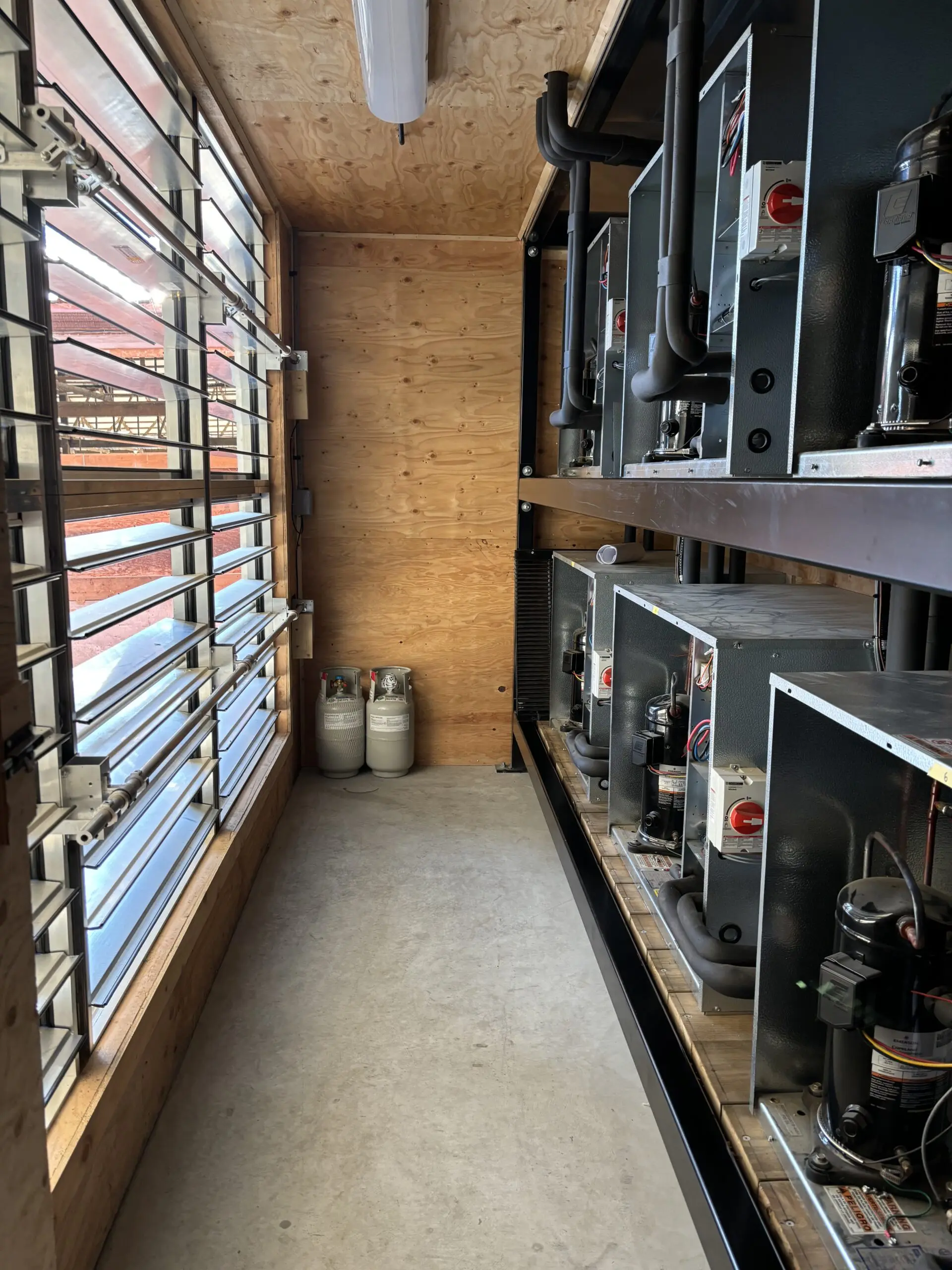
Clean-room equipment design at Gracemar Farms extends system life and improves efficiency.
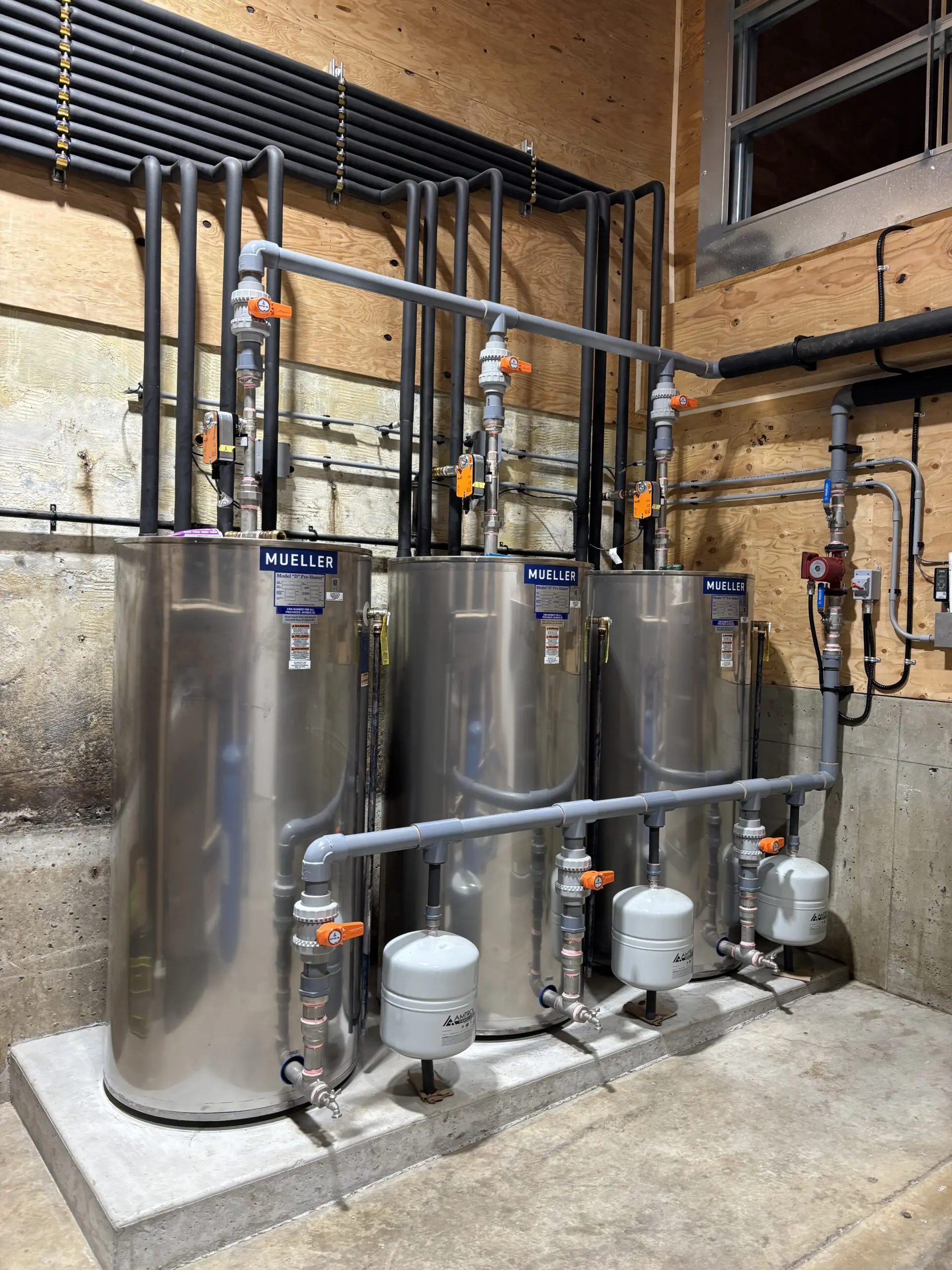
Gracemar Farms was operating with outdated refrigeration equipment that created chronic ammonia issues and limited system reliability. Equipment lifespans averaged only 7 years, leading to frequent replacements, high costs, and constant maintenance demands.
The existing system also wasted significant amounts of heat energy, offering no recovery process to repurpose excess thermal output. This inefficiency raised operating expenses and missed opportunities to support livestock operations more sustainably.
At the same time, regulatory pressures around air quality and environmental compliance meant a long-term solution was needed — one that would improve safety, extend system life, and support sustainable farming practices.
Alpine engineered a custom dairy chiller retrofit that addressed Gracemar Farms’ ammonia challenges while extending equipment lifespan. Instead of replacing the system with another short-lived setup, Alpine designed a solution built for long-term durability and efficiency.
By integrating an advanced clean-room layout and heat recovery system, Alpine captured waste heat that had previously been lost, repurposing it to provide warm water for livestock and boiler preheat. The result: improved air quality, reduced operating costs, and a system designed to last decades instead of years.
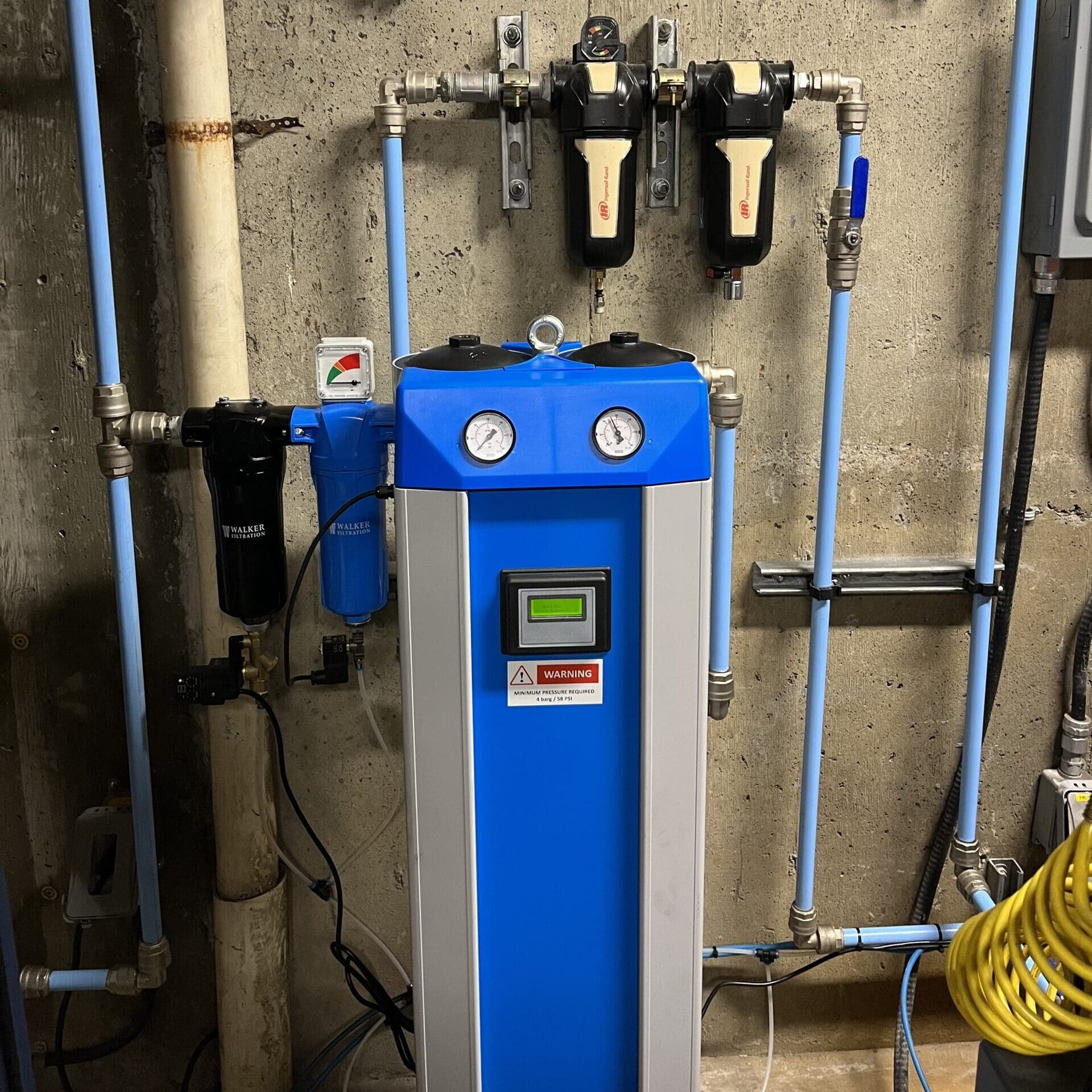
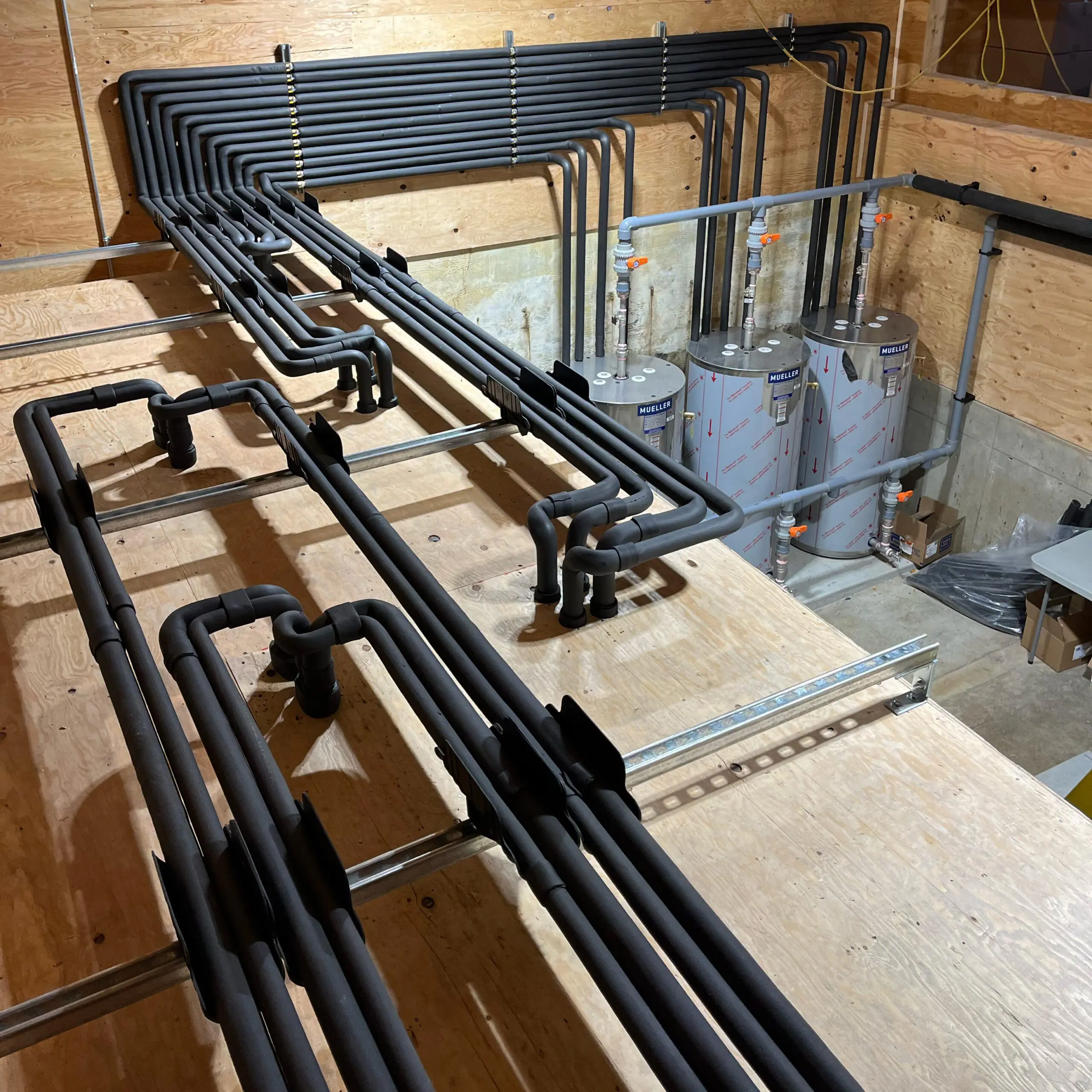
Early results from the Gracemar Farms dairy chiller retrofit show a dramatic improvement in system longevity and efficiency. Equipment that once lasted only ~7 years is now projected to run for 25–30 years, cutting capital replacement costs and ongoing maintenance demands.
The retrofit’s integrated heat recovery system also captures energy that was previously wasted, repurposing it to provide warm water for livestock and boiler preheat. This innovation has reduced operating expenses while supporting more sustainable farm operations.
The project further enabled Gracemar Farms to qualify for IAF sustainability grants, underscoring Alpine’s role in delivering not just technical solutions but financial and environmental benefits as well.
This retrofit gave Gracemar Farms a cost-efficient, long-term solution that improved reliability, lowered operating costs, and advanced sustainability. The design is serviceable, durable, and sets a new benchmark for agricultural HVAC retrofits across British Columbia.
The Gracemar Farms dairy chiller retrofit proved that agricultural HVAC upgrades can be practical, repeatable, and scalable. By working with existing infrastructure and integrating heat recovery, Alpine created a retrofit model that avoids costly replacements while delivering long-term efficiency.
This retrofit model has already gained attention from other dairy and agricultural operations across BC. Rising energy costs and sustainability requirements mean farms need solutions that balance budget, compliance, and efficiency — and Alpine’s approach delivers exactly that.
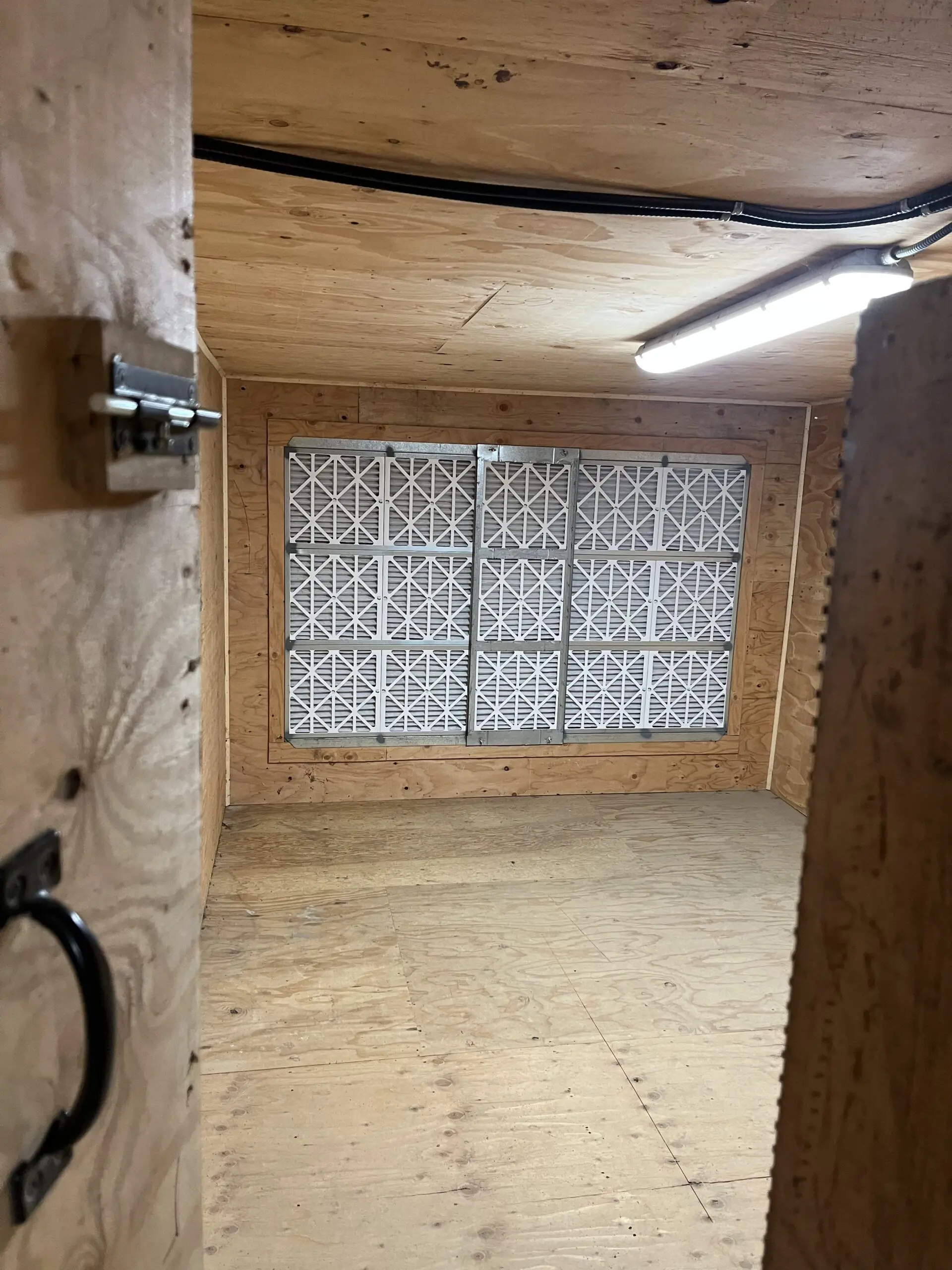
Cut utility bills with custom, efficient systems.
Stay compliant with today’s environmental standards.
Proven solutions in every sector we serve.
Installations were scheduled to minimize downtime. Because Alpine retrofitted existing systems instead of replacing them entirely, farm operations were able to continue with limited disruption.
Yes. The heat recovery system reuses waste energy to heat livestock drinking water and preheat boilers, cutting energy bills while improving efficiency.
The retrofit extended system lifespan from roughly 7 years to a projected 25–30 years, significantly reducing replacement costs.
By capturing waste heat and improving reliability, the system reduces energy waste and qualifies for IAF sustainability grants, helping farms meet environmental targets.
Absolutely. The design is scalable and adaptable, making it suitable for other dairy farms and agricultural facilities facing similar challenges.
Routine maintenance is straightforward. The clean-room design keeps equipment accessible, while durable components reduce the frequency of repairs.
Full replacement would have meant high costs and short service life. The Alpine retrofit approach avoids major tear-outs while delivering long-term durability.
Improved air quality, reliable water heating for livestock, and reduced maintenance interruptions have all had a major impact on daily farm efficiency.